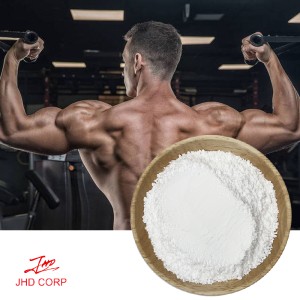Which one is better for muscle growth, creatine monohydrate or creatine hydrochloride?
Both forms of creatine can be effective for muscle growth, but creatine monohydrate remains the gold standard due to its extensive research support and proven results.
When it comes to enhancing muscle growth, creatine supplements have long been a staple in the fitness community. Two popular forms of creatine are creatine monohydrate and creatine hydrochloride. Both have their advocates, but which one is truly better for muscle growth?
Creatine monohydrate is the most researched and widely used form of creatine. It has been the subject of numerous studies that consistently demonstrate its effectiveness in improving muscle mass, strength, and exercise performance. Creatine monohydrate works by increasing the phosphocreatine stores in your muscles, which in turn helps produce more ATP (adenosine triphosphate), the primary energy carrier in cells. This boost in energy availability allows for improved performance during high-intensity, short-duration exercises, such as weightlifting and sprinting.
One of the major advantages of creatine monohydrate is its cost-effectiveness. It is generally less expensive than other forms of creatine, making it accessible to a wider range of athletes and fitness enthusiasts. Additionally, its long history of use means that its safety profile is well-established, with minimal reported side effects when taken at recommended dosages.

On the other hand, creatine hydrochloride has gained popularity in recent years due to its purported benefits of improved solubility and absorption. The hydrochloride form is believed to dissolve more easily in water and be absorbed more efficiently by the body. This could potentially lead to fewer gastrointestinal issues, such as bloating or stomach discomfort, which some users experience with creatine monohydrate.
However, while creatine hydrochloride powder food grade may offer these advantages, it lacks the extensive research backing that creatine monohydrate enjoys. Fewer studies have been conducted on creatine hydrochloride, and while preliminary results are promising, they do not yet provide the same level of evidence regarding its effectiveness for muscle growth.
Ultimately, the choice between creatine monohydrate and creatine hydrochloride may come down to individual preference and tolerance. If you are looking for a tried-and-true supplement with a strong track record and an affordable price point, creatine monohydrate is likely your best bet. However, if you have experienced digestive issues with monohydrate or are interested in trying a newer form of creatine, you might consider giving creatine hydrochloride a try.















